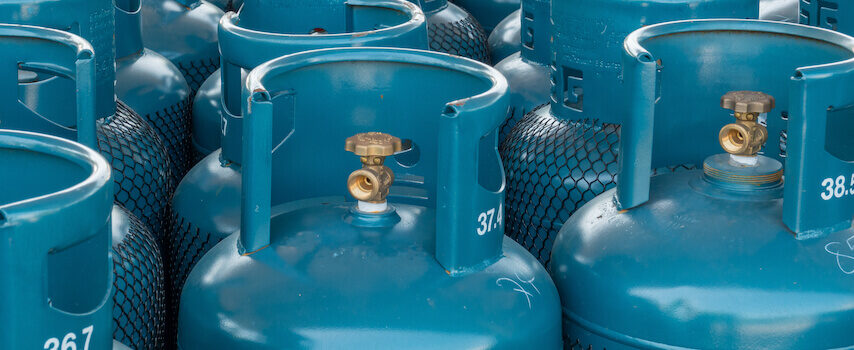The term “natural gas” refers to a complex mixture of gases high in hydrocarbon content. The atmosphere contains naturally occurring concentrations of all these gases, including methane, nitrogen, and carbon dioxide. Natural gas reserves are located deep inside the ground, close to coal, crude oil beds, and other solid and liquid hydrocarbons.
Natural gas is not consumed in its unprocessed state; rather, it is refined into fuels with lower emissions before being used. During the processing of natural gas, several useful byproducts, such as propane, ethane, butane, carbon dioxide, and nitrogen, are recovered. These byproducts can be used in a variety of subsequent applications.
Why Switching to Natural Gas Is Important?
Even if more emphasis is being paid to clean energy, fossil fuels are still responsible for 80% of the world’s energy consumption and 75% of the emissions of greenhouse gases. Our energy system, built on burning fossil fuels, comes at a tremendous financial cost. The use of fossil fuels is a primary cause of economic fragility, which occurs when nations and businesses are exposed to fluctuating fuel prices; many of these economies also depend on importing expensive energy. According to the World Health Organization, dangerous outdoor air pollution caused by burning fossil fuels claims the lives of 4.2 million people worldwide. Coal, oil, and gas contribute to increased human susceptibility.
One of the reasons why there is a growing demand for natural gas is because it is a natural resource that is readily available. According to estimations provided by the International Energy Agency (IEA), there are sufficient recoverable natural gas resources to last for approximately 230 years. Natural gas deposits can be found worldwide, simplifying extraction and supply. As long as the necessary infrastructure is in place, this could result in natural gas costs remaining relatively cheap.
As a result of the fact that natural gas is transported to commercial establishments through underground pipelines, it is not susceptible to the same patterns of disruption that can affect overhead electrical lines. Even if a thunderstorm knocks out the power to surrounding buildings, there is a good chance that you will still have access to natural gas. Your company may be able to avoid potentially expensive periods of downtime thanks to the consistent supply and reliability of natural gas, which, in turn, can help you maximize production and enhance your bottom line.
Finding ways to be more efficient and cut costs should be a priority for every size of the company, no matter how big or how little. Actual savings can be had by maximizing the value of your current natural gas connection. These savings can come in the form of decreased initial costs and reduced charges for continuous energy use.
When comparing natural gas to other types of energy, you may find that you have a greater degree of control over the ongoing costs of your company when you use it. There are various financial incentives and options for capital contributions for big-scale gas-powered infrastructure you can take advantage of if in case you want to obtain the most out of natural gas for your company and maximize its worth.
Low Carbon Dioxide and Greenhouse Gas Emissions
Burning natural gas results in the generation of greenhouse gases; nevertheless, compared to other fossil fuels, it creates the lowest amount of carbon emissions, resulting in the lowest amount of pollution. Because of this, in addition to the fact that it has a high energy output, it makes an excellent fuel for the bridge.
Consequently, it is an obvious choice to follow in the footsteps of coal and petroleum. Because of its relatively low carbon emissions, it has become an attractive choice as a power source for both developed and emerging nations.
When it comes to using natural gas to power the many different operations that take place within your commercial establishment, you have a vast range of options from which to choose. To begin, heating a large office building using natural gas is the method that uses the least amount of energy.
When used in industrial facilities, natural gas offers superior temperature control, which makes it possible to condition the air according to the requirements of the operations being carried out. There is also the option of using natural gas for your air conditioning system. Home appliances, manufacturing machinery, and various outdoor activities can all be powered by natural gas.
How to Cut Down Your Natural Gas Bills?
Energy audits are essential when it comes to reducing the costs associated with business gas. An energy audit evaluates how your company consumes energy and how you can make it more efficient to save money. These tools point out the areas in which a change may have the most significant influence, and they can function as a road map for achieving long-term energy efficiency.
After getting an energy audit, you may proceed to compare price estimates from natural gas suppliers in your area. Remember that the item with the lowest price is not necessarily the one that will work best for you. Customer service, advising alternatives, price rates, fees, promotional rates, and other factors should also be considered when selecting a provider. Before making a move, you should ensure you have a solid understanding of the organization to guarantee that you make the right choice.
Would you like to contribute what you can to help the environment? When you compare green energy rates, you can also find the best deal on an environmentally friendly energy and gas contract for your company, no matter what size it is. Businesses can lessen their impact on the environment, enhance their public image, and lower their carbon footprint by soliciting green energy price estimates from multiple suppliers and switching to one of them.
Green energy plans are slightly more expensive than your typical corporate energy contract. Still, you can be eligible for tax relief for decreasing your carbon footprint if you choose one option.













